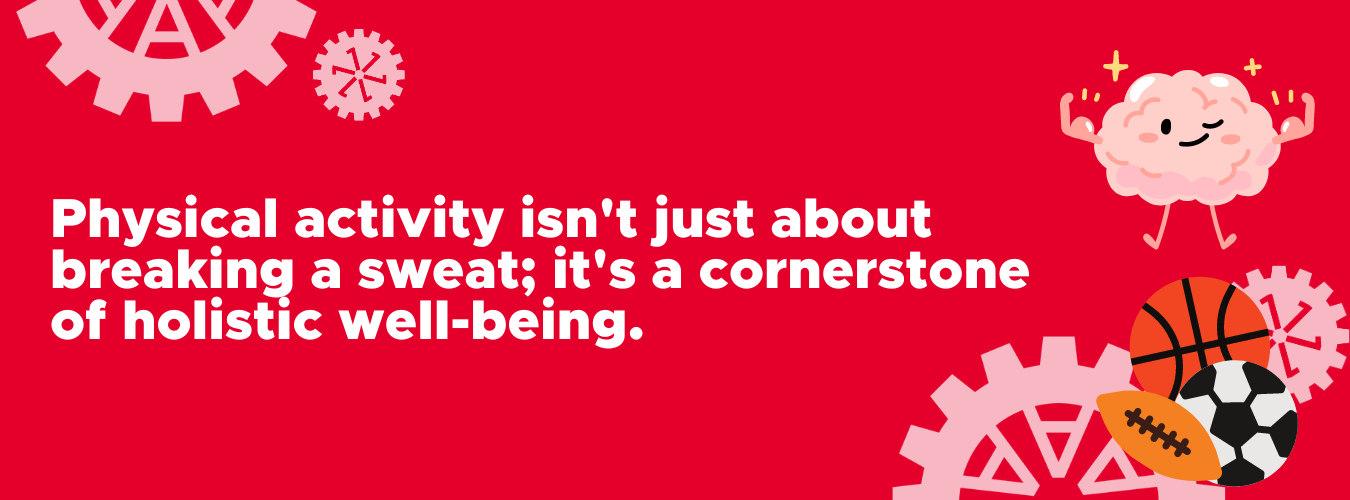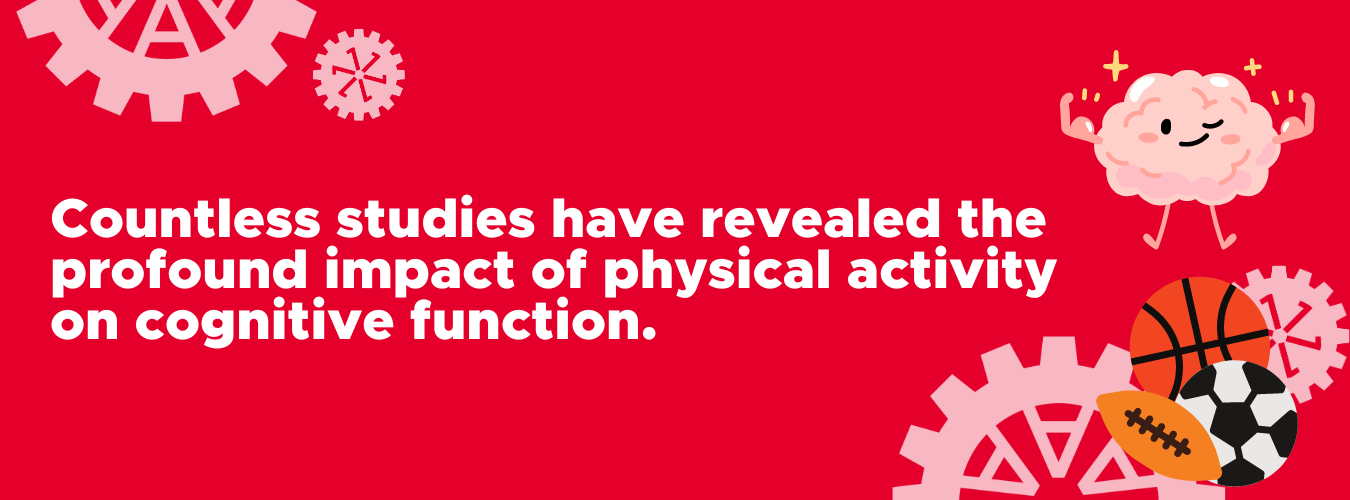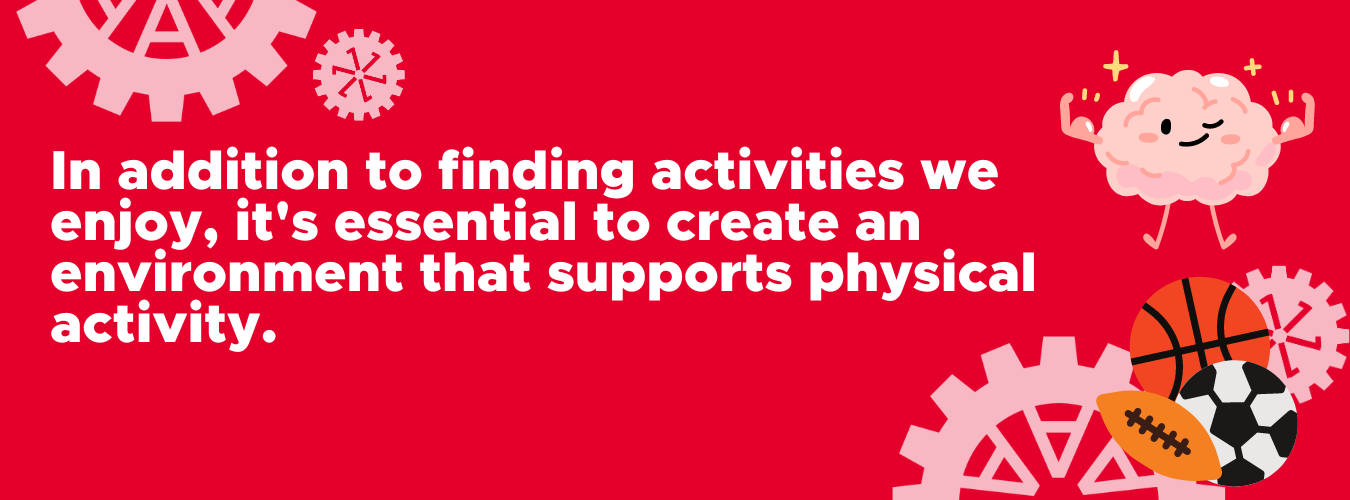The Connection Between Physical Activity and Cognitive Function

In the hustle and bustle of our daily lives, it's easy to prioritise physical health over cognitive well-being. However, by investing in cognitive health, you not only help your physical well-being but also sharpen your mind.
In this blog post, we'll explore the intriguing correlation between physical exercise and cognitive function, uncovering how movement can elevate brainpower and enrich overall mental sharpness.
Understanding Cognitive Function:
Before delving into the association with physical activity, let's first grasp the essence of cognitive function. It encompasses the mental processes that enable us to gather knowledge, tackle problems, make decisions, and retain information. Essentially, cognitive function spans everything from memory and concentration to logical thinking and ingenuity. Needless to say, it plays a vital role in navigating the intricacies of everyday life.
More Than Just a Workout:
Beyond merely sweating it out, physical activity serves as a pillar of holistic well-being. Whether it's taking brisk walks, playing netball, or engaging in athletics, there's a spectrum of activities to explore. While exercise undeniably strengthens muscles, enhances cardiovascular health, and increases endurance, its impact on mental wellness is equally significant.
Research indicates that physical activity can alleviate symptoms of stress, anxiety, and depression by triggering the release of endorphins, the body's natural mood elevators. Furthermore, overcoming physical challenges fosters a sense of accomplishment and empowerment, nurturing resilience and self-confidence in our children, thus enriching their overall quality of life.

Engaging in physical activity also stimulates cognitive enhancement. Whether children are navigating a hiking trail, mastering a dance routine, or refining basketball skills, their brains are constantly processing information, making quick decisions, and coordinating movements. This cognitive stimulation not only sharpens mental acuity but also reinforces neural connections, laying the foundation for improved memory, attention, and problem-solving abilities. By prioritising regular physical activity, we not only train their bodies but also provide their brains with a workout, preparing them for peak performance in all aspects of life.
How Physical Activity Boosts Cognitive Function:
Numerous studies have highlighted the profound impact of physical activity on cognitive function. Whether it's a jog or a gym session, exercise has been shown to enhance memory, extend attention spans, and even refine decision-making abilities.
But how does it achieve this? Physical activity increases blood flow to the brain, triggering the release of neurotransmitters and promoting the growth of new brain cells, all of which contribute to sharper cognitive function.

The Impact Across the Lifespan:
The advantages of physical activity span across all age groups. From youngsters to seniors, everyone can benefit from staying active. For children, physical activity encourages cognitive growth and enhances academic achievement. Conversely, in older adults, it serves as a potent defence against cognitive decline and dementia, aiding in the preservation of memory and cognitive abilities well into the later years of life.
Incorporating Physical Activity Into The Routine:
Now that we comprehend the scientific rationale behind it, how can we integrate more physical activity into the daily routines of our children? The crux lies in discovering activities they enjoy and seamlessly fitting them into their schedules. Whether it entails opting for stairs over elevators, embarking on family strolls, or participating in dance classes or soccer teams, even minor adjustments can yield substantial cognitive rewards over time.

Exploring the Role of Nutrition in Cognitive Function:
While physical activity significantly boosts cognitive function, we mustn't neglect the role of nutrition. Just as the body requires proper fuel for optimal performance, the brain also depends on a balanced diet for peak functionality.
Research indicates that certain nutrients, such as omega-3 fatty acids found in fish, antioxidants abundant in fruits and vegetables, and vitamins like B12 and folate, play pivotal roles in promoting cognitive health. By nourishing their bodies with nutrient-rich foods, we furnish their brains with the essential elements they require to flourish.
Creating an Environment Conducive to Physical Activity:
Beyond simply enjoying activities, it's crucial to establish surroundings conducive to physical activity. This could entail carving out dedicated time for family exercise sessions or implementing minor adjustments to seamlessly integrate movement into our daily schedules.

The connection between physical activity and cognitive function runs deeper than we might initially realise. Whether it's the surge of endorphins during a game or the mental agility demanded on the court, every physical motion contributes to our holistic well-being, both physically and mentally.
However, the journey towards enhanced cognitive function doesn't end here. While physical activity serves as a potent tool in honing our mental faculties, acknowledging the significance of supplementary learning, such as after-school tutoring with NumberWorks'nWords, is equally crucial. Just as we challenge our bodies to strengthen through exercise, we must also challenge our minds to expand their capabilities through ongoing education.




